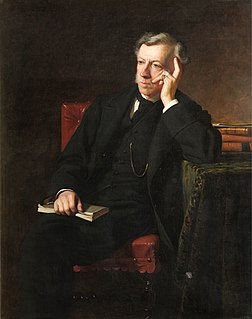A Quote by Neil deGrasse Tyson
They [scientists of centuries past] call on God only from the lonely and precarious edge of incomprehension. Where they feel certain about their explanations, however, God gets hardly a mention.
Related Quotes
Scientists rightly resist invoking the supernatural in scientific explanations for fear of committing a god-of-the-gaps fallacy (the fallacy of using God as a stop-gap for ignorance). Yet without some restriction on the use of chance, scientists are in danger of committing a logically equivalent fallacy-one we may call the “chance-of-the-gaps fallacy.” Chance, like God, can become a stop-gap for ignorance.
I don't know whether God exists or not. ... Some forms of atheism are arrogant and ignorant and should be rejected, but agnosticism—to admit that we don't know and to search—is all right. ... When I look at what I call the gift of life, I feel a gratitude which is in tune with some religious ideas of God. However, the moment I even speak of it, I am embarrassed that I may do something wrong to God in talking about God.
You can’t run away. The past will be only too happy to chase you —- in absolute, complete, and total earnest. Do you know why? Because they’re lonely. The past and memories are very lonely things. I don’t believe in God. Because he doesn’t have a fixed form. The past certainly does exist, even in a world where the future doesn’t have a fixed form. Even if it’s being colored by misunderstandings and delusions, a person’s past can’t be anything but the truth as long as he believes in it. If that’s what you base your actions or your way of life on, isn’t that like being god?
There comes the baffling call of God in our lives also. The call of God can never be stated explicitly; it is implicit. The call of God is like the call of the sea, no one hears it but the one who has the nature of the sea in him. It cannot be stated definitely what the call of God is to, because his call is to be in comradeship with himself, for his own purposes, and the test is to believe that God knows what he is after.
Because the Christian God is not a lonely God, but rather a communion of three persons, faith leads human beings into the divine communion. One cannot, however, have a self-enclosed communion with the Triune God- a "foursome," as it were-- for the Christian God is not a private deity. Communion with this God is at once also communion with those others who have entrusted themselves in faith to the same God. Hence one and the same act of faith places a person into a new relationship both with God and with all others who stand in communion with God.
You hear a lot about God these days: God, the beneficent; God, the all-great; God, the Almighty; God, the most powerful; God, the giver of life; God, the creator of death. I mean, we're hearing about God all the time, so we better learn how to deal with it. But if we know anything about God, God is arbitrary.
To terrorize a man into believing in God is never the work of God, but the work of human expediency. If we want to convince a congregation of a certain thing, we may use terror to frighten them into it; but never say that is God's way, it is our way. To call that God's method is a travesty to the character of God.
The God content of the past no longer sustains the contemporary spirit. We sense that our only hope is to journey past those definitions of a God who is external, supernatural, and invasive, which previously defined our belief. We must discover whether or not the death of the God we worshiped yesterday is the same thing as the death of God.
An atheist is someone who is certain that God does not exist, someone who has compelling evidence against the existence of God. I know of no such compelling evidence. Because God can be relegated to remote times and places and to ultimate causes, we would have to know a great deal more about the universe than we do now to be sure that no such God exists. To be certain of the existence of God and to be certain of the nonexistence of God seem to me to be the confident extremes in a subject so riddled with doubt and uncertainty as to inspire very little confidence indeed.


































